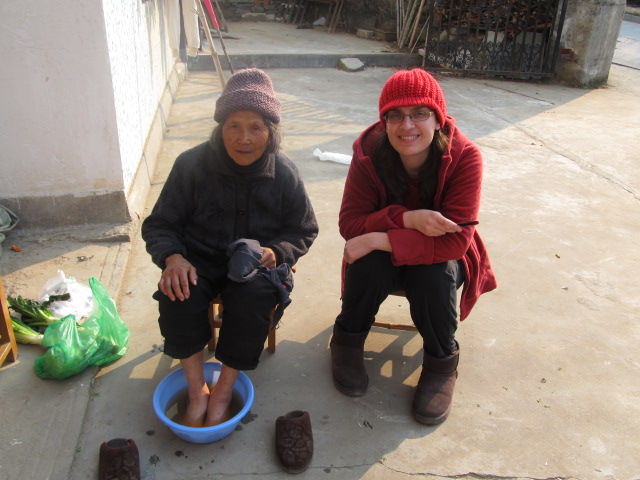
“Learn some Mandarin Chinese” is a suggestion I offer any foreigner dating someone Chinese, especially if they want to make a great first impression with the family. Even just knowing a handful of phrases makes a difference.
But what happens if you’re like me, someone now fluent in Mandarin Chinese after years of study…with a Chinese family whose local dialect is a completely different language.
My husband John hails from Western Zhejiang Province and his local language is one of China’s Wu Dialects (a family of languages that includes the dialects of Shanghai, Suzhou, Hangzhou, Ningbo and Wenzhou). There are literally thousands of dialects within this family. Even here in the Hangzhou region, which includes the county where my husband was born and raised, his local dialect differs from the county seat’s local dialect which also differs from the Hangzhou dialect. When John and I visited a friend in Yiwu, a city in Central Zhejiang Province, the local dialect there was completely different as well — and tough for both of us to understand. Still, nothing can beat Wenzhou dialect, considered one of China’s most difficult local languages to comprehend (supposedly, it was used for communications in China during World War II to ensure no enemies — especially Japan — could intercept wartime messages).
How is John’s local language different from Mandarin Chinese? Here are few examples:
Grandmother
– Mandarin Chinese: Waipo
– John’s local dialect: Abu
Child
– Mandarin Chinese: xiao haizi
– John’s local dialect: xia ninguo
Play/have a good time
– Mandarin Chinese: wan
– John’s local dialect: xi
Shoe
– Mandarin Chinese: xie
– John’s local dialect: a
Oneself
– Mandarin Chinese: ziji
– John’s local dialect: xiguo
Hour
– Mandarin Chinese: xiaoshi
– John’s local dialect: zhongtou
You get the idea…it’s an entirely different language!
But unlike Cantonese or Shanghainese, which are local languages in some of China’s biggest business/financial centers (Guangzhou, Hong Kong, Shanghai), my husband’s local dialect is only spoken in John’s hometown, a mountainous rural backwater. You won’t see foreign language students flocking to study John’s dialect, nor will doing so boost my resume.
So why bother learning at all?
That was my initial feeling when I first spent time at my husband’s home in the village. I had invested so much of my language study on Mandarin Chinese…and besides, we never stayed at his hometown for more than a few days or a week, providing me few opportunities to learn or practice.
But over the years, I started to find myself hitting a wall — and that wall was named Grandma (Waipo to you Mandarin speakers, Abu out here). See, Grandma doesn’t speak a word of Mandarin Chinese. And to make matters worse, she was born in the Wenzhou area…so her local dialect is clouded with a Wenzhou accent, making it even more of a challenge to understand her. During the summer of 2011, when John left me here at the family home, I passed many uncomfortable moments at Grandma’s house, trying to decipher what she was trying to say — missing out on opportunities to get to know her as person.
That’s the thing: this is the language of people I care about.
Yet it’s more than that, as this author reminded me in an article praising the importance of local dialects in China:
I don’t know where the tipping point was when dialects turned from a communication obstacle to a cherished heritage for Chinese culture. But when I stumbled upon children in my hometown talking to each other in Mandarin while playing on the street, it dawned on me that the days for most dialects are doomed. They would disappear within one generation or two. Possibly within my lifetime, most dialects would go down the road of calligraphy, or worse the abacus, where they would be under academic scrutiny and government protection, but out of the daily use of the common folk.
By learning John’s local dialect, even if it isn’t obviously “useful” or “practical”, I could actually help preserve part of China’s cultural heritage.
Of course, that’s if I ever actually master the language. For now, it’s just a phrase here, a phrase there, and a smattering of words.
But you should have seen the way John’s Grandma beamed at me when I opened her door and finally called her “Abu!” It warmed my soul to know that we were finally communicating for the first time in years. And though I have a long way to go (John still does most of the talking with her) I know in my heart I made the right decision to learn.
Have you ever considered learning an uncommon Chinese dialect? Why or why not?
Update: scratched out the entries under “Hour” above, thanks to the commenters who noted that Mandarin Chinese speakers may use both. Good catch!
